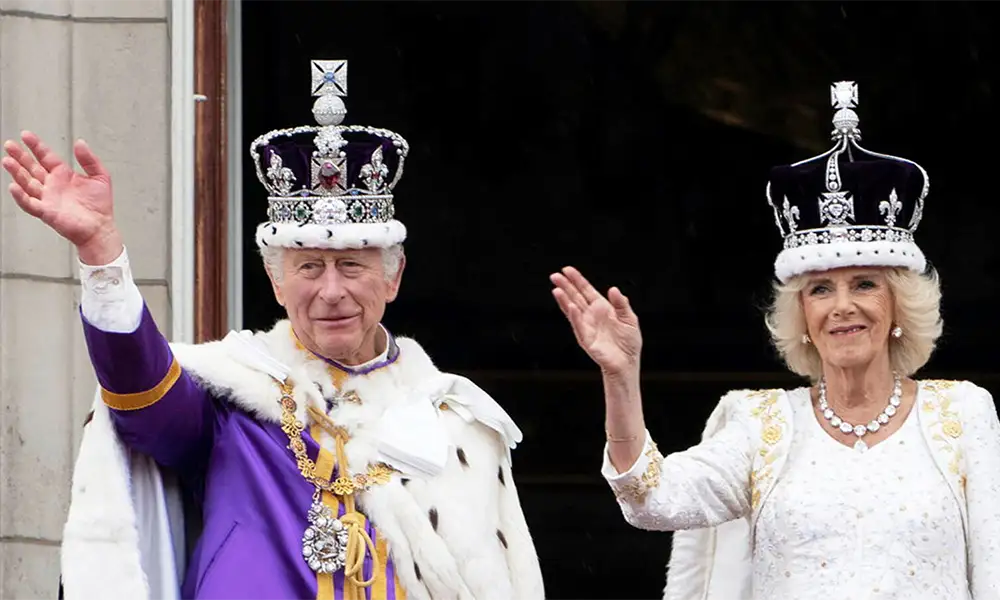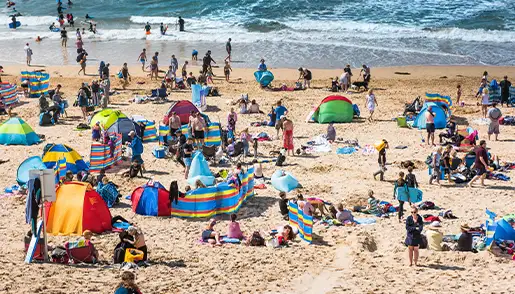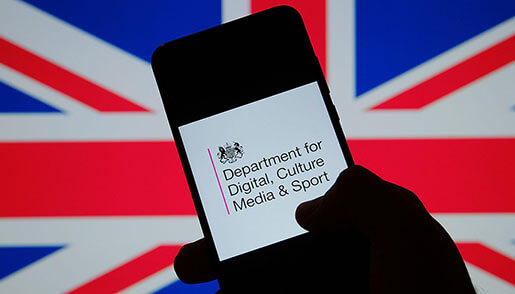Remember the heatwave that hit the United Kingdom in May and June? Or has it all been washed out of your memory by the torrential rain that came down in July and August? In this article we take a look back over summer 2023 and ask the question: how will this year be remembered by members of the public and by the bingo industry?
We can let you into a little bit of a secret. While the nicer weather might be nice for most people and maybe for the bingo halls and casinos as people get out and about, on the flip side the online gambling brigade hate the hot weather for the same reason. The bingo industry love to see the snow and the rain as it means people will be looking for something to entertain themselves with indoors and what better than a visit to your favourite online bingo site?
The really hot summers always live long in the memory, and anyone who lived in the UK in 1976 remembers how the sun shone for three consecutive months as the nation enjoyed a holiday atmosphere on home soil.
Then there was summer 1995, which gave 90s kids their very own happy memory of a six-week school holiday complete with balmy evenings playing out in the consistently warm weather that blessed the country that year.
More recently, we had the summer of 2018 when it felt like every day was t-shirt and shorts weather, and when England made it all the way to the semi-final of the World Cup as the sound of “football’s coming home” rang out around the sun-baked streets.
So what of summer 2023? Will it be remembered as one of those legendary summers or one of the many that promised so much and failed to deliver? It certainly delivered a mixed bag for the online bingo industry.
Read on for a look back at our collection of memories from what was, let’s face it, a mixed bag of a summer!
*18+. New customers only. Spend £10 to get £40 Bingo Bonus (4x wagering) + 40 Free Spins (value £0.10 each, selected games). Claim & use within 7 days. Restrictions and T&Cs apply. Please play responsibly. Gambleaware.org #AD
May: A wet coronation and the start of a heatwave
The Coronation of King Charles III and Camilla took place at Westminster Abbey in London on Saturday May 6th, back when the Great British summer was just getting underway.

Image credit: The National Archives
The nation celebrated by throwing street parties over the course of the weekend, but people had to contend with sudden bursts of rain and remarkably heavy showers that meant gazebo sales went through the roof! But for some the weekend largely stayed dry as bunting fluttered and neighbours gathered to mark the occasion with food, drinks and dancing.
Data from the Met Office shows that the most rain in a single day fell at Harestock in Hampshire, where a 43.6mm deluge landed on May 9th, and there were also downpours on May 11th affecting Stevenage, Hatfield and Welwyn Garden City.
Wet and grey was the story of the early part of May, as rainfall exceeded the average amount that usually hits the country. Indeed, most of the month’s rainfall came between the 5th and the 12th of May, but temperatures remained higher than average, peaking between 15 and 17 degrees Celsius and rarely falling lower than seven degrees.
The summer started to show signs of getting underway properly around the middle of the month, just as Sweden were winning the Eurovision Song Contest with the song Tattoo by Loreen on May 13th.

Image credit: Alma Bengtsson/SVT
The mercury steadily climbed and the weather stayed fine and settled for most of the country, making May a much drier and warmer month on average as a whole. Just as the month was coming to an end, a heatwave began and temperatures hit 24 degrees for the first time in 2023 on May 27th. The highest maximum temperature was 25.1 degrees at Porthmadog in Wales and across the whole month of May Britain enjoyed 207.2 hours of sunshine – 12 hours more than the average for May in the previous 10 years.
18+ New Customers. Opt in. Deposit & play £5 on Bingo within 7 days. Get £15 on Bingo. Advertised £15 Bingo based on 10p tickets. Rewards expire after 7 days. T&Cs apply, see below. GambleAware.org | Please gamble responsibly. Full T&Cs Apply.
June: the hottest on record!
After a mixed bag in May, few could have predicted that the UK was heading into its hottest June on record, as well as its fourth sunniest June and a month that was far drier than average for most people across the country.
As the news headlines saw house prices fall by 3.4%, Phillip Schofield leave This Morning, and train strikes disrupting events including the FA Cup final and a Beyoncé Knowles concert, mean temperatures stayed around the monthly average before shooting up into the high teens around June 9th and then continuing to climb.
A heatwave was officially declared on June 13th, which is defined by the Met Office as “an extended period of hot weather relative to the expected conditions of the area at that time of year, which may be accompanied by high humidity”.
The hottest day of the year came on Sunday June 25th when temperatures hit 32.2 degrees Celsius in Coningsby, Lincolnshire, which is where the UK’s hottest ever temperature of 40.3 degrees was recorded on July 19th 2022.

Image credit: Getty Images
The baking hot weather was not always easy to manage, and a heat health alert was extended throughout the second half of June, and there were hosepipe and sprinkler bans in Kent and Sussex as water reserves had to be protected.
Elton John played the final UK concert of his farewell tour at Glastonbury on June 25th as revellers basked in the balmy weather, and by the end of the month the Met Office confirmed that June had been one degree hotter than the previous hottest Junes on record which came in 1940 and 1976.

Image credit: Harry Durrant/Getty Images
The Met Office’s Mark McCarthy, who works in the team responsible for weather and climate records, said: “It’s officially the hottest June on record for the UK, for mean temperature as well as average maximum and minimum temperature.
“June started with a good deal of high pressure and temperatures initially around average for many, but once that subsided, warm, humid air began to influence temperatures, with 32.2°C the highest temperatures reached.
“What’s striking is the persistent warmth for much of the month, with temperatures widely into the mid 20s Celsius for many and even into the low 30s at times.”
*New customers only. Opt-in required. 100% Match Bonus up to £50 on 1st deposit of £10+. 50x wagering & game weighting applies. Debit Card deposits only (exclusions apply). This offer is valid for 7 days from your new account being registered. 18+. BeGambleAware.org. Bet The Responsible Way Full Terms Apply
July: what a washout!
After such a sizzling June, many of us were digging out our beachwear and getting excited about the prospect of some sunny summer holidays in the month of July.
However, much to our dismay, the jet stream shifted much further south than it was in June, leaving the poor old United Kingdom to endure what can only be described as some autumnal weather in July as the country’s rainfall hit 170 per cent of the average for July, making it the wettest July since 2009.

Image credit: Getty Images
While temperatures stayed quite warm for the most part, we were not treated to much sunshine with southern and western areas of the country recording just 81 per cent of the average July hours of sunshine.
The news headlines were not much happier either, with rail services still being disrupted as strikes were left unresolved, and then in the middle of the month junior doctors began a five-day walkout over pay – the longest doctor’s strike in NHS history.
There was some more cheerful news in the world of cinema, as film fans flocked to see Barbie and Oppenheimer, making the weekend of July 22nd and 23rd the most successful weekend for UK cinema-going since 2019, with the films taking a combined £30 million in their box office openings.

Image credit: Mark Makela/Getty Images
Going to the cinema was made an even better idea by the fact that there was barely a dry day across the country throughout July, and heavy downpours caused flooded roads across Northern Ireland and Tyne and Wear.
The highest temperature of the month was recorded at 30.2 degrees Celsius on July 7th in Chertsey, and the most rainfall in a day came when 110.9mm fell at White Barrow in Devon on July 22nd.
1st Deposit only. Dep & Stake £10 bingo get £30 online bonus (x4 wagering) & £10 club vouchers, &/or £10 qualifying slots get £20 slots bonus (x20 wagering), 10p-£2 per spin. T&Cs apply. 18+
August: only one hot day
July had been such a let-down that few people went into August with particularly high hopes, and sadly there weren’t many pleasant surprises when it came to sunshine and warmth.
As news headlines focussed on the spread of a new COVID-19 variant, known as EG.5.1, and high street retailer Wilko going into administration, those of us on our summer holidays in the UK had to reach for our raincoats and sometimes even our woolly jumpers as the weather continued to take on an autumnal feel.

Image credit: PA Wire
Storm Antoni swept across the country during the first week of August, forcing the cancellation of events in the south west, such as the Cardigan County Show, and causing power cuts that affected 1,500 properties in Cornwall.
There was hope that England’s Lionesses might produce a bright spot in a dreary August when they reached the final of the FIFA Women’s World Cup, but they were defeated 1-0 in the final by Spain while storm Betty brought strong winds and heavy rain to parts of the country.

Image credit: Abbie Parr/AP
There were occasional moments when August felt like the halcyon summers of yesteryear, such as on the 10th when much of the country bathed in sunshine and temperatures hit 28.4 degrees Celsius in Wellesbourne, Warwickshire. But across the course of the month the UK received 12 fewer hours of sunshine than the average August in the previous decade.
To make matters even more frustrating, hundreds of flights to and from the UK were delayed on August 28th, due to technical problems with the UK’s air traffic control system, meaning that even those who were heading abroad for a chance of a better summer were left unable to travel!
In summer-y…
Kind of warm but very wet! The Met Office review of summer 2023 declared it the 9th wettest summer on record since 1910, but confirmed that it was at least warmer than average.
Even June, when temperatures consistently exceeded 30 degrees Celsius, was among the wettest on record with 50 per cent more than the average UK rainfall for that month.
So, while there were a few weeks when we could enjoy sitting outside in the evenings or even sunbathing on British beaches, it seems unlikely summer 2023 will be fondly remembered by many.
How will you look back on the summer that has just ended? Let us know in the comments!
Other Latest Industry News



























Reader comments